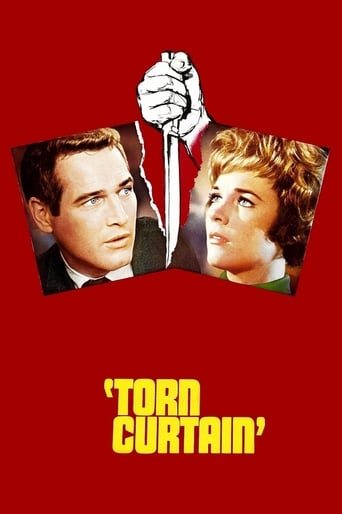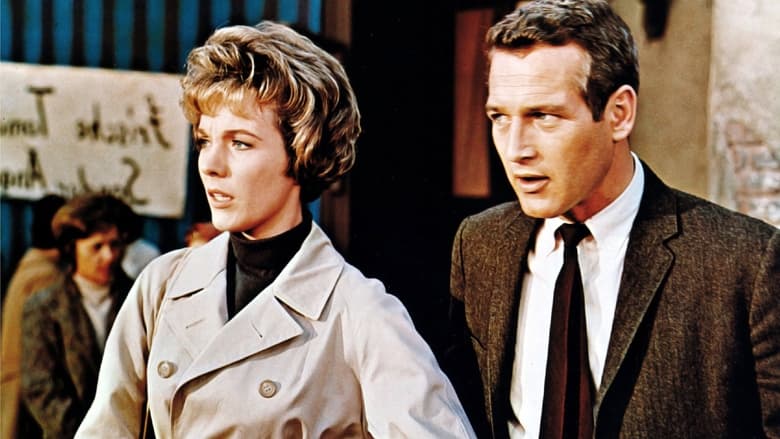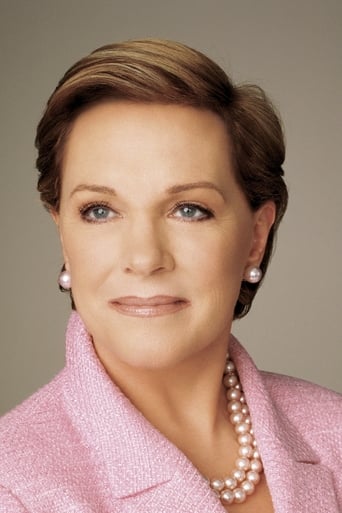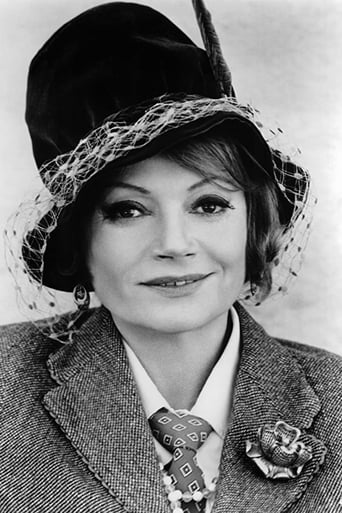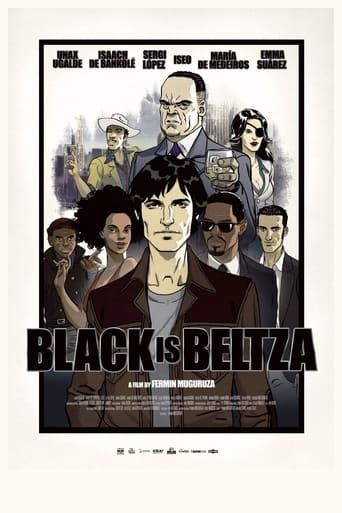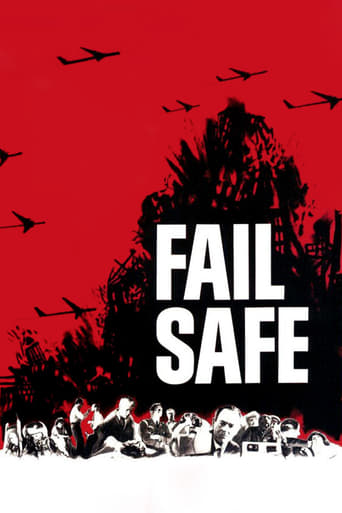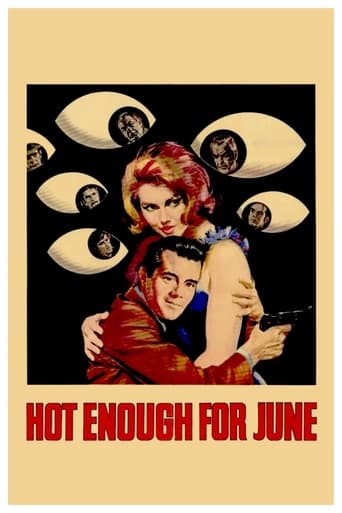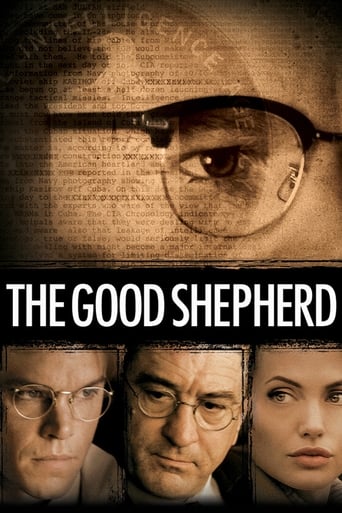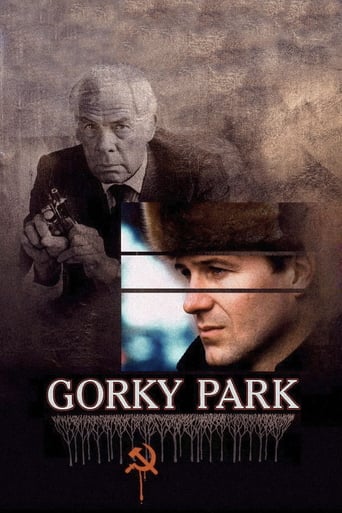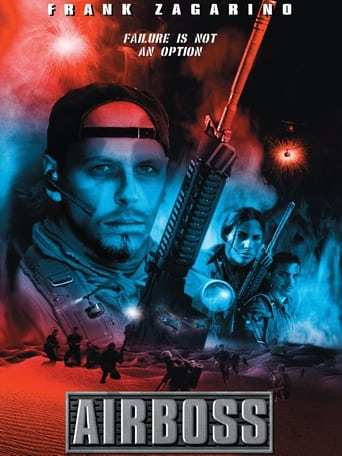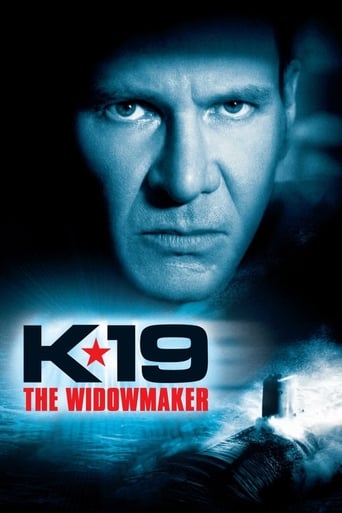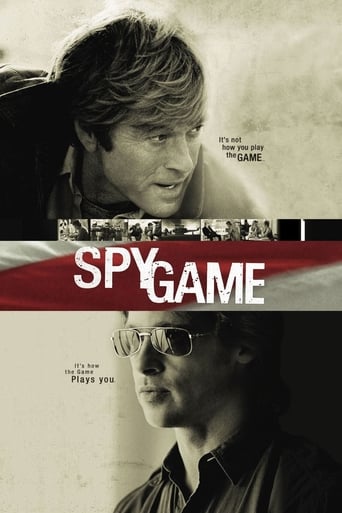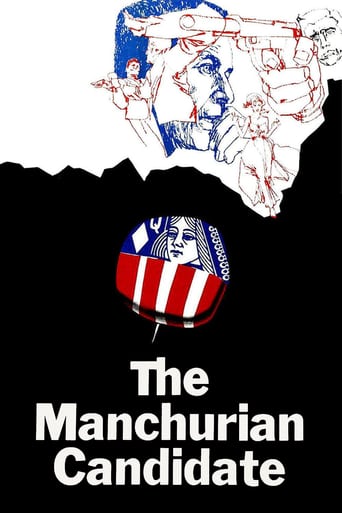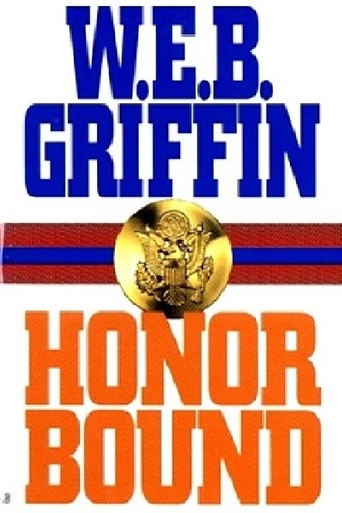Torn Curtain (1966)
During the Cold War, an American scientist appears to defect to East Germany as part of a cloak and dagger mission to find the formula for a resin solution, but the plan goes awry when his fiancee, unaware of his motivation, follows him across the border.
Watch Trailer
Cast


Similar titles
Reviews
good back-story, and good acting
Although it has its amusing moments, in eneral the plot does not convince.
Clever, believable, and super fun to watch. It totally has replay value.
The joyful confection is coated in a sparkly gloss, bright enough to gleam from the darkest, most cynical corners.
This is the last Hitchcock movie with huge stars in main roles. When you hear names Hitchcock, Paul Newman and Julie Andrews in same sentence you expect masterpiece, but you'll get just a decent thriller without bigger flaws, but which does not stand out from the average in any way. If you decide to see this film you won't be bored, but I honestly doubt that tomorrow you'll even remember what you saw. Unless you are true fan of some of the above mentioned legends, I recommend skipping it.6/10
Since Alfred Hitchcock had a penchant for icy blondes, it's a puzzlement why he cast Julie Andrews in Torn Curtain, since she's neither icy nor blonde. In any case, Julie Andrews tries to shed her sweet image in this Cold War complicated drama.Julie is engaged to Paul Newman, and when she finds out he's in cahoots with Germany, she has to decide whether or not to abandon him or stand by her man, even though he's obviously been lying and hiding secrets for years.To me, the most memorable scene in the film is when Paul Newman is giving a lecture on how to spot a liar in the interrogation room. He plays a tape for his audience and asks them what they notice. He points out that the man repeated his answers verbatim, which gave away his lie. Normally, people vary their language when telling the same story two or three times, but if a man uses the exact same words, he's rehearsed it. I loved that scene. It was so interesting to me.If you like Cold War films, this is a great one. The audience is constantly confused, wondering who the good and bad guys are, including the two leads!
Michael Armstrong (Paul Newman) is a physicist and Sarah Sherman (Julie Andrews) is his assistant/fiancée. The government had rejected his work on an anti-missile defense. They're in Norway for a conference. He tells her that he's going to Stockholm but she finds out that he's actually going to East Berlin. She follows him there. To her shock, he declares that he is defecting to the east once they arrived.Alfred Hitchcock had already achieved greatness when this movie opened. The problem with this movie is that it fails to reach the same heights. This is a rather bland unoriginal espionage movie. It feels like a script from the maybe pile. The dialogue has no sting. There is no shock value. I never bought Armstrong's defection. The long kill of the East German Stasi agent is pretty good but it still lacks realism. It's a run-of-the-mill thriller from somebody who should have done better.
In the 1960's the tensions of the Cold War ensured that the spy genre was at the height of its popularity both in films and on TV. After the financial failure of Marnie (1964), Alfred Hitchcock chose to play it safer and moved away from the complex psychological aspects of that film and into the more populist, less ambiguous spy thriller territory with his next two films Torn Curtain and Topaz (1969). Unfortunately, the decision did not pay off, as both of those were equally as unsuccessful at the box office as the darker, less straightforward Marnie. For me, Marnie is easily the best of Hitchcock's three 60's box office bombs but of the two spy thrillers, Torn Curtain is superior to Topaz. It's less flabby and more concise, yet both films share a similar characteristic where they begin very well but lose their way somewhat in their final third. With Torn Curtain, the initial set-up is somewhat intriguing and paced very well; it also includes a classic Hitchcock scene where a man and a woman kill a communist security agent in a farmhouse in a particularly protracted an messy fashion, going against cinematic norms and illustrating the sheer difficulty of killing someone. But psychological edginess is eventually disregarded and the plot essentially mutates into a chase movie which is a bit of a let-down considering the potential that has been put in place in the set-up.Its story has an American nuclear physicist defect to East Germany but finds his situation complicated when his fiancé follows him. This one is also typified by featuring two actual mega-stars of its day in Paul Newman and Julie Andrews. It has to be said though that neither of them seem to be at their best here and their performances almost feel a bit forced. Seemingly Hitchcock did not work well with method actor Newman and this clash of styles could be at least partially responsible for the uneasy feeling on-screen. Torn Curtain is hardly a disaster though as it does contain some great moments and benefits from a very polished look. And in fairness, even though it is somewhat routine, it's no less so that a few of Hitchcock's earlier more lauded thrillers. I do feel though that this director is at his best when he is working with material with more psychological edginess, as opposed to the more straightforward suspense embodied in Torn Curtain. It's a solid but unspectacular affair.

